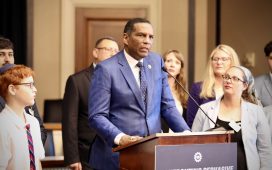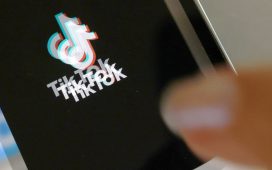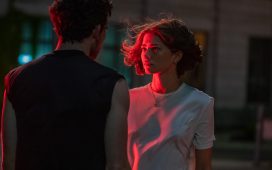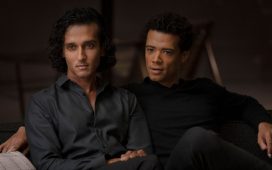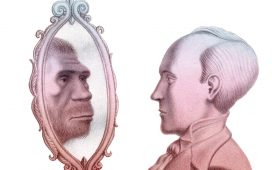The show’s creator had envisioned the reboot to focus on the tragic shooting from the beginning. Dunn told The Hollywood Reporter that there was “only one way” to redo the show, and that a Pulse-like shooting would serve as the catalyst. “After Pulse,” he said, “the community had really felt united. It happened in Orlando, but the ripple effect was felt across the world.”
According to Dunn, the community members involved in the listening sessions felt specifically that it was important to share what happened in the aftermath of the tragedy, when the national media had turned its attention elsewhere. “At first, I was reluctant,” Jeff Xcentric, another paid consultant on the show who was shot several times during the tragedy and was the only permanently injured survivor to participate in the sessions, says. “But then I eventually gave in and I did interact and reach out because I felt like I had to share my story — our story, because it’s not just mine.”
Queer as Folk has never shied away from difficult topics; former iterations featured storylines about HIV/AIDS, substance use disorders, and abuse, just to name a few. In fact, the American reboot ends its fifth season with the bombing of Babylon, which kills seven people and injures 67 others. Of course, this bombing doesn’t closely reflect an actual event that happened in recent history and still lives firmly in survivors’ memories. Dunn says that he hopes the show can be a catalyst for reflection on this very real tragedy and the sequelae of gun violence. “It’s important to tell the stories of people who don’t get to necessarily move on,” he said, “and what that experience is like.”
Pain is almost always a running motif in queer narratives, at least partly because the vibrance of queer community is often formed on the edges of darkness. You love and celebrate your chosen family, but implicit in a chosen family is the fact that you’ve had to choose one. In many ways, the new Queer as Folk does depict the complexity of our current moment, where no safe space feels safe, gun control is nowhere on the legislative horizon, and queer people, despite it all, do find love and make friends. But the question remains: does a show that responds to this cultural moment necessarily need to depict its most brutal horrors? And if it does, what’s the right way to do so?


